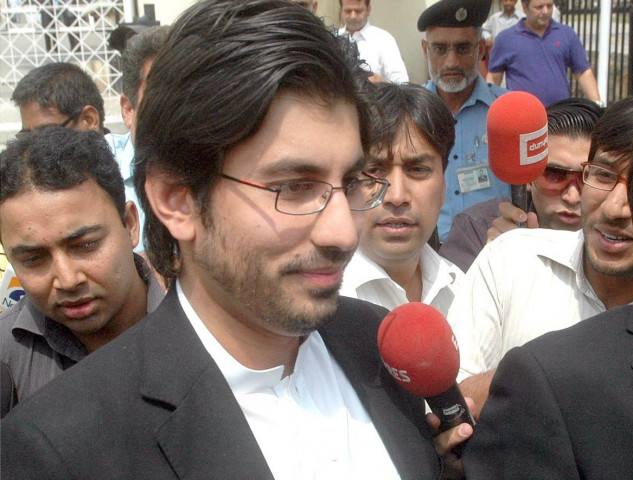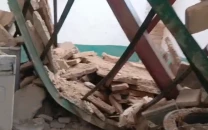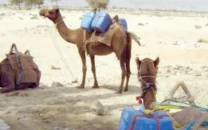Reko Diq gold & copper mines: Arsalan Iftikhar tasked with luring investors
Jan Buledi tactically admits his govt had been asked by the federal govt to reach an out-of-court settlement with TCC.

Reko Diq gold & copper mines: Arsalan Iftikhar tasked with luring investors
Dr Arsalan Iftikhar, among other things, has been tasked with bringing investors to Reko Diq – a high-profile but controversial gold-mining project that his father, Iftikhar Muhammad Chaudhry, had taken up in a suo moto case when he was chief justice.
Recently appointed Vice-Chairman of the Balochistan Investment Board (BIB) – which Chief Minister Dr Abdul Malik Baloch defended in front of the media on Saturday – Dr Arsalan will be assigned to bring in foreign and local investment in the mineral sector including Reko Diq gold & copper mines project, a highly placed official from Quetta told The Express Tribune.
The provincial government is contemplating re-entering into an exploration and mining agreement with Tethyan Copper Company (TCC), according to the official.
Interestingly, a three-judge bench of the Supreme Court, headed by then chief justice Iftikhar, in its ruling on January 7, 2013, had declared void and in conflict with Pakistan’s laws a previous agreement reached between the government of Balochistan and TCC for gold & copper mining at Reko Diq in Chagi district on July 23, 1993.

Jan Buledi, an official spokesperson of the Balochistan government, said, “The BIB is assigned to facilitate investment for economic development,” adding that “the BIB is looking for investment for every sector, including minerals, and Reko Diq is part of the mineral sector.”
The spokesperson also tactically admitted that his government had been asked by the federal government and legal experts to reach an out-of-court settlement with the TCC.
“Both [the] federal and provincial governments would not be able to bear the financial losses in case a financial penalty is inflicted by the International Court of Arbitration,” he said, adding that “keeping in view the advice, we are making efforts to resolve the issue through talks with TCC.”
Buledi did not specifically name any multinational company that might have better chances of gaining the mining licence, but he said the TCC will also be entitled to apply for the licence when the provincial government calls for international tenders.
“I think it will be unfair to prevent TCC from participating in the bidding for a licence,” the spokesperson said. “The provincial government would like to settle all its legal issues with the TCC as its claim for financial compensation is pending in the International Court of Arbitration.”
‘Unrealistic project’
As a first step to award a mining licence to a suitable multinational company, the provincial government has already closed its own exploration and mining project of Reko Diq after finding that the project is unrealistic.
Funds that were sanctioned for the project under the Public Sector Development Programme (PSDP) in the last financial year of 2013-14 were blocked after closing down the project. “It was an unrealistic project. We have blocked funds that were allocated by the previous provincial government as it would have been a waste of public money” Buledi said.
The project, named H-4, was initiated by the previous provincial government of then chief minister Nawab Aslam Raisani in 2013 after he was convinced by scientist Dr Samar Mubarakmand that the Balochistan government was qualified enough to undertake mining at Reko Diq with its own financial resources and technical proficiency.
Raisani entrusted the task of exploration and mining to a newly created provincial organisation, Balochistan Copper Gold Project (BCGP), and appointed Mubarakmand as chairman of BCGP’s board of directors.
The provincial government had obtained an approval by the Planning Commission on the basis of a study conducted by experts that declared the project viable. The project was to be executed within four years, after the release of funds in 2012, with the total estimated cost of Rs8,812 million.
The present provincial government, after coming into power in 2013, not only dumped the project but also removed Mubarakmand and his team.
Buledi, while justifying the abandoning of project H-4, said, “The provincial government is not convinced that it had the required capacity to carry out exploration and mining on its own. H-4 was an ill-conceived proposition of Mubarakmand and his team.”
Published in The Express Tribune, June 29th, 2014.


















COMMENTS
Comments are moderated and generally will be posted if they are on-topic and not abusive.
For more information, please see our Comments FAQ